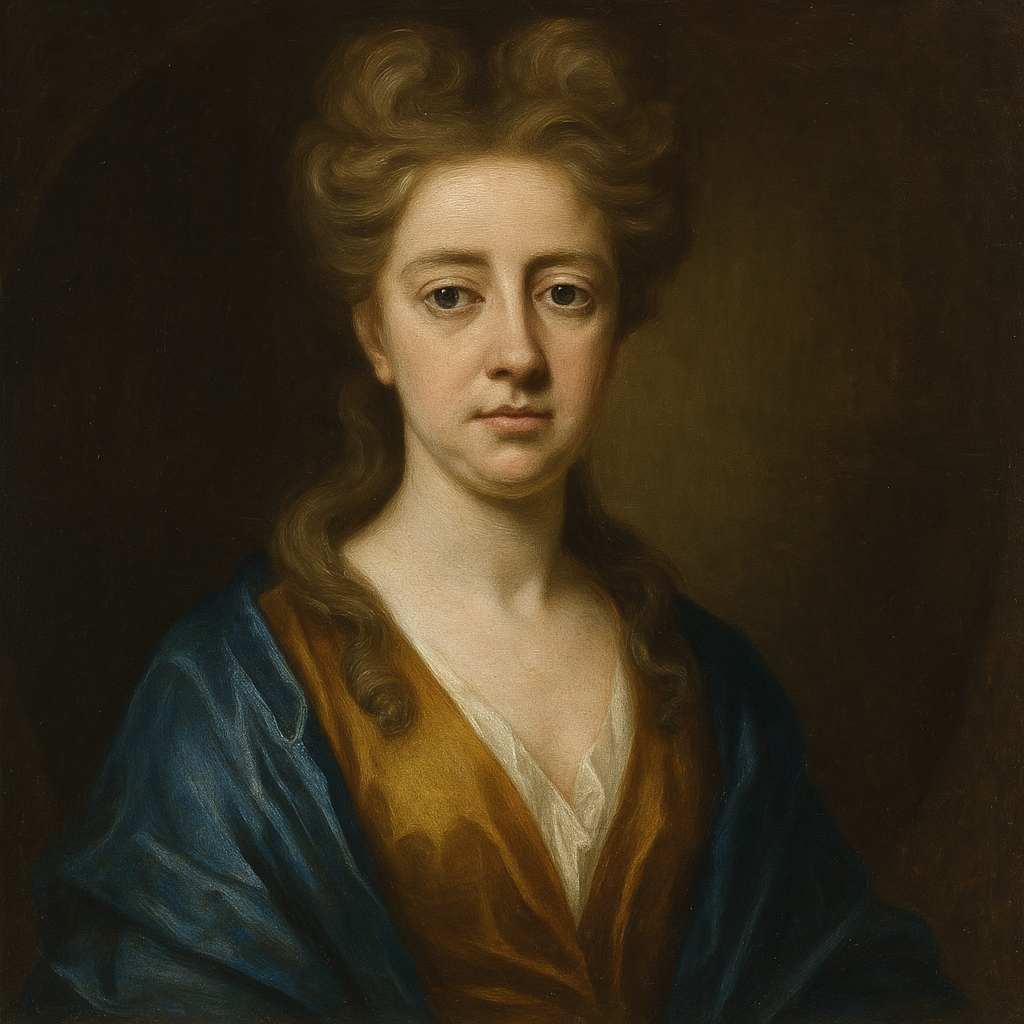1 Poems by Elizabeth Thomas
1675 - 1731
Elizabeth Thomas Biography
Elizabeth Thomas, an often overlooked but significant figure in 18th-century English poetry, led a life marked by intellectual curiosity, literary ambition, and a keen awareness of the societal constraints placed upon women of her era. Born in 1675 in Skenfrith, Monmouthshire, Wales, Thomas was the daughter of a country gentleman, which afforded her certain privileges in terms of education and leisure time that many of her female contemporaries did not enjoy.
From an early age, Thomas displayed a voracious appetite for learning, devouring the books in her father's library and developing a particular fondness for poetry. Her early exposure to the works of classical authors and contemporary poets laid the foundation for her own literary pursuits. However, as a woman in Georgian England, her path to recognition as a serious writer would be fraught with challenges.
Thomas began writing poetry in her teens, adopting the pseudonym "Corinna" after the ancient Greek poet. This choice of nom de plume was significant, reflecting both her classical education and her desire to align herself with a tradition of female literary figures. Her early works, largely circulated in manuscript form among friends and family, showcased a precocious talent for verse and a keen observational eye.
In 1700, at the age of 25, Thomas made her public debut as a poet with the publication of a poem in "The Gentleman's Journal." This marked the beginning of a prolific period in her career, during which she would contribute to various periodicals and miscellanies. Her poetry covered a wide range of subjects, from pastoral scenes and nature descriptions to more introspective pieces exploring themes of love, loss, and the human condition.
One of Thomas's most significant works, "Miscellany Poems on Several Occasions," was published in 1722. This collection brought together many of her previously published poems along with new material, offering readers a comprehensive view of her poetic range and skill. The volume was well-received, earning praise for its technical proficiency and emotional depth.
Throughout her career, Thomas maintained correspondence with several prominent literary figures of her time, including John Dryden and Alexander Pope. These relationships provided her with valuable feedback on her work and helped to establish her reputation within literary circles. However, they also exposed her to the often harsh criticism and gender-based prejudices that women writers of the period faced.
Thomas's poetry is characterized by its blend of classical allusions and contemporary sensibilities. She often employed pastoral imagery and mythological references, but imbued them with a distinctly personal voice. Her work frequently touched on themes of female experience and the constraints placed upon women in Georgian society, though these critiques were often veiled in metaphor and allegory to avoid censure.
One of the most intriguing aspects of Thomas's life and work is her long-standing romantic relationship with Richard Gwinnett, a fellow poet. Their correspondence, which spanned over two decades, provides a fascinating glimpse into the intellectual and emotional lives of two literary figures of the period. The letters, later published as "Pylades and Corinna," offer valuable insights into Thomas's creative process and the challenges she faced as a woman writer.
Despite her talents and connections, Thomas struggled financially for much of her life. The death of her father left her in a precarious economic situation, and she often relied on the patronage of wealthy admirers to support her writing. This financial instability is reflected in some of her later works, which take on a more somber and reflective tone.
In her later years, Thomas turned increasingly to religious themes in her poetry. Her final collection, "Poems on Several Occasions," published in 1726, includes a number of devotional pieces that showcase her evolving spiritual beliefs and her continuing mastery of poetic form.
Elizabeth Thomas died in 1731, leaving behind a body of work that, while not as widely recognized as that of some of her male contemporaries, represents an important contribution to 18th-century English poetry. Her life and work offer a compelling case study in the challenges and opportunities faced by women writers in the early modern period.
In recent years, there has been a renewed scholarly interest in Thomas's poetry, with critics reevaluating her place in the canon of English literature. Her unique voice, blending classical learning with personal experience, and her nuanced exploration of gender roles in Georgian society, make her work particularly relevant to contemporary discussions of women's writing and literary history.
Elizabeth Thomas's legacy as a poet is one of persistence in the face of societal constraints, of intellectual rigor combined with emotional honesty, and of a life dedicated to the craft of poetry. Her story serves as a reminder of the many voices that have been marginalized in literary history and the importance of recovering and reexamining these neglected figures.
This text was generated by AI and is for reference only. Learn more
Username Information
No username is open
Everything is free to use, but donations are always appreciated.
Quick Links
© 2024-2025 R.I.Chalmers (V2Melody).

All music on this site by R.I.Chalmers (V2Melody) is licensed under a Creative Commons Attribution-NonCommercial 4.0 International License.
Attribution Requirement:
When using this music, you must give appropriate credit by including the following statement (or equivalent) wherever the music is used or credited:
"Music by R.I.Chalmers (V2Melody) – https://v2melody.com"
Support My Work:
If you enjoy this music and would like to support future creations, your thanks are always welcome but never required.
Thanks!


